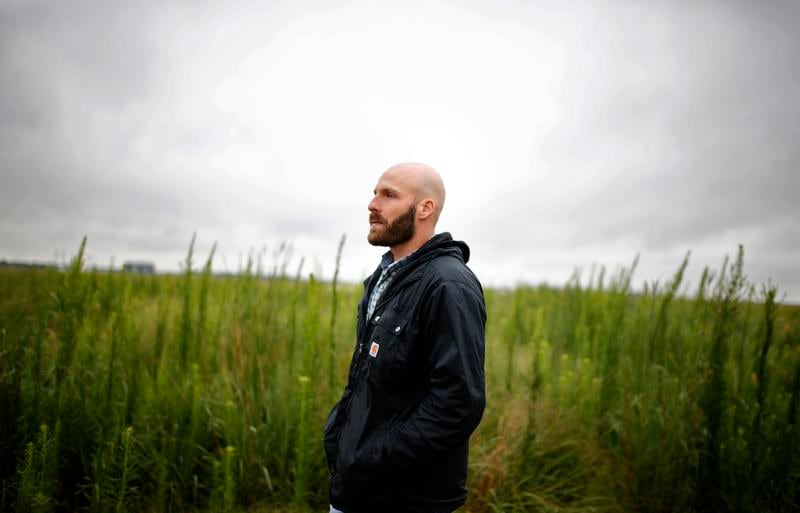OKLAHOMA CITY — Oklahoma’s attorney general said Friday that he acted on his own when he sent a letter to President Donald Trump supporting a pardon requested by a former U.S Army soldier convicted of unpremeditated murder in a combat zone.
Mike Hunter sent the letter, dated Wednesday, to Trump in support of the pardon request of former 1st Lt. Michael Behenna.
RELATED

“It’s a case ... I have followed and been aware of and never felt the outcome was justified,” Hunter told The Associated Press. “When I see something that’s not consistent with the basic principles of justice ... I’m going to do my best to protect the interest of the citizens of this state.”
Hunter acknowledged he is “acquainted” with Behenna’s mother, Vicki Behenna, who is a former federal prosecutor now in private law practice in Oklahoma City, and with Behenna’s brother, who is also an attorney, but said he does not know them well.
Behenna, a native of the Oklahoma City suburb of Edmond, now lives in Guthrie where he works on a cattle ranch, about 25 miles (40 kilometers) north of Oklahoma City. He was granted parole in 2014 after serving five years of his 15-year sentence.
Behenna said the letter came as a surprise.
“This is not something we asked him to do,” Behenna said. “I didn’t have a heads-up that he was going to write that letter to President Trump. At the same time, (I am) very thankful and grateful for Mr. Hunter’s compassion.”
Behenna was convicted in 2009 in the death of an unarmed Iraqi prisoner. Behenna said he acted in self-defense when the man reached for Behenna’s handgun, but the Army said the argument didn’t stand up because Behenna was pointing his weapon at the prisoner.
Behenna admitted during his trial that instead of taking the prisoner home as he was ordered, he took the man to a railroad culvert, stripped him, then questioned him at gunpoint about a roadside bombing that had killed two members of Behenna’s platoon.
Behenna said the man moved toward him and he shot him because he thought he would try to take his gun.
A military appeals court in 2012 found that jury instructions on self-defense were incorrect and that prosecutors failed to tell the defense of a crime scene expert who supported the claim of self-defense, but said the errors were harmless and did not affect the outcome of the trial.
Army public affairs officer William Sharp said he could not immediately comment.
Recent presidents have issued pardons near the end of their term in office, but Behenna is hopeful for an answer sooner.
“As we all know President Trump has pardoned Joe Arpaio, what, a few months back,” said Behenna.
Arpaio, a former six-term sheriff of metro Phoenix, was convicted on a misdemeanor contempt of court charge in 2011 after defying a judge’s order to stop traffic patrols that targeted immigrants. Trump pardoned him in August.




